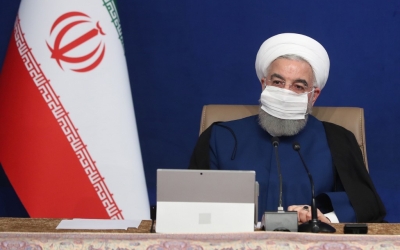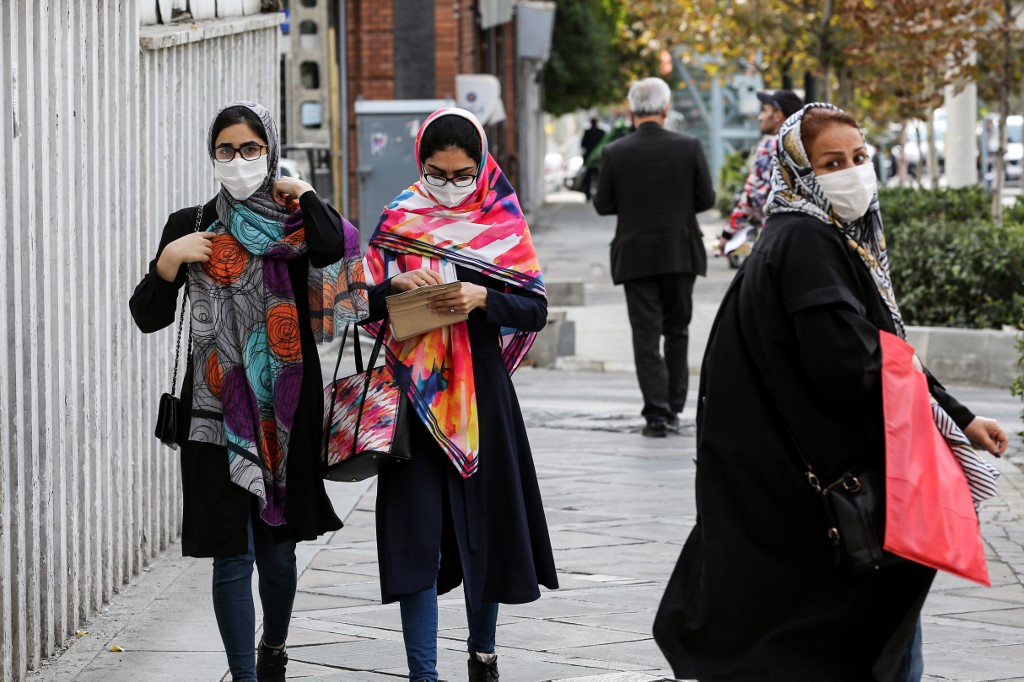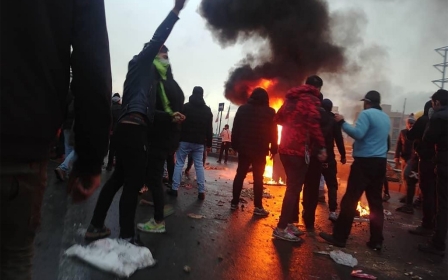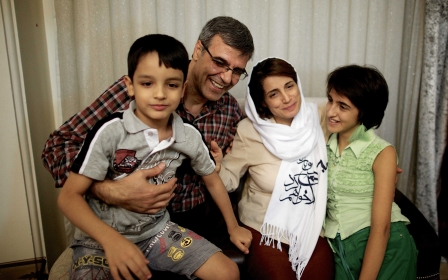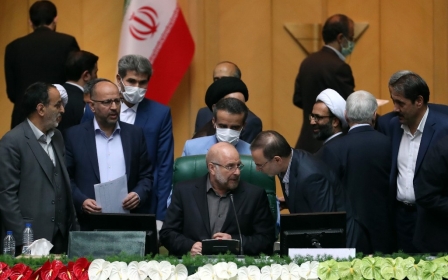Iranian press review: IRGC sends message to Biden with new missile launcher
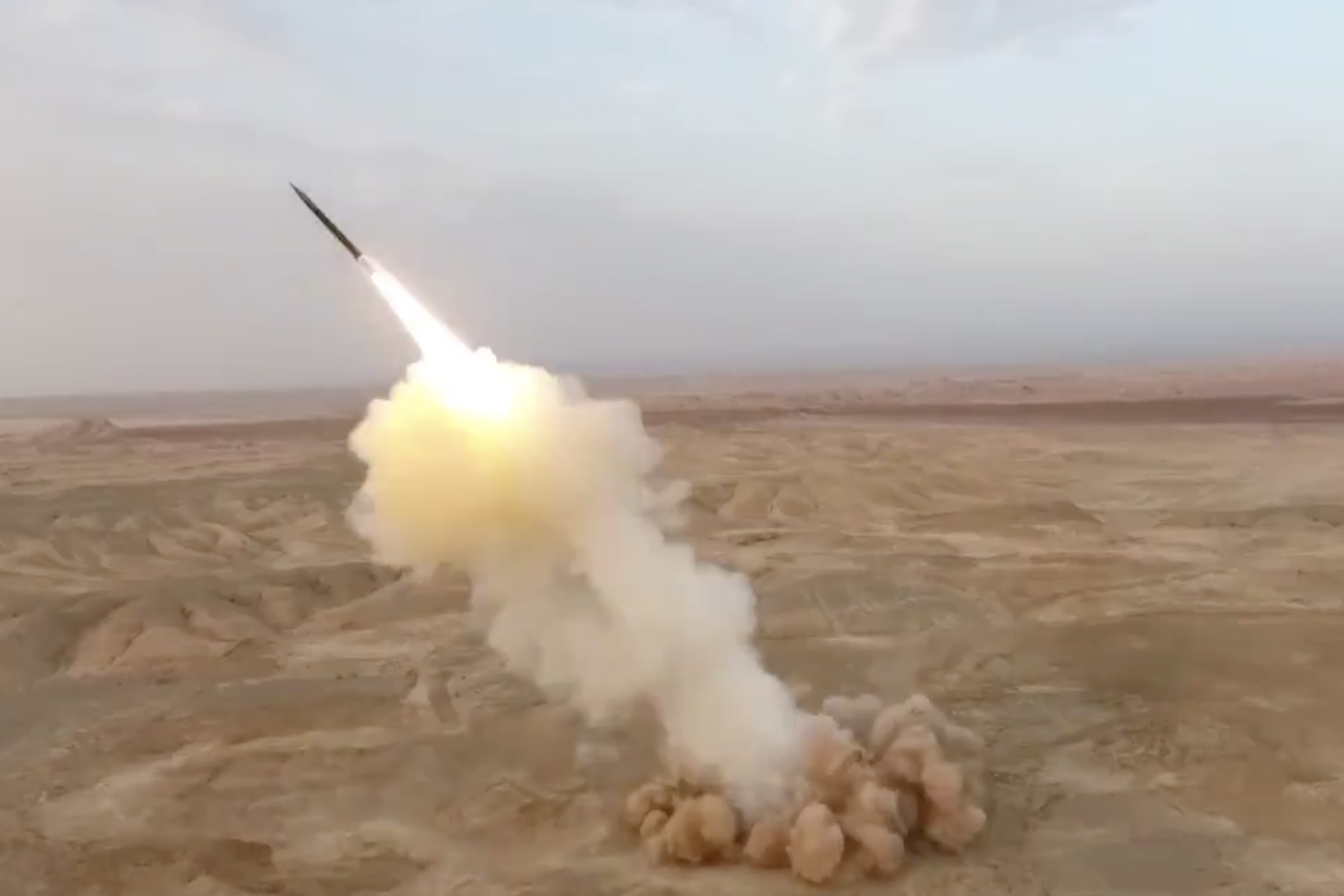
IRGC reveals multiple ballistic missile launcher
While the entire world was focused on the US presidential elections, Iran’s Revolutionary Guard Corps (IRGC) unveiled a new underground ballistic missile launcher platform.
Iranian outlets close to the IRGC reported on the 4 November that the new domestically developed system, dubbed as a ‘missile shower,’ is capable of launching several projectiles in a short period of time.
The reports did not elaborate on the number of missiles the new platform could launch, nor the time the platform needs to create continuous shooting.
A video published by Fars news agency shows five missiles being carried on a rail track to the launch pad.
According to the IRGC-affiliated Tasnim news agency, the new system was developed in Iran to increase the efficiency of missile defence systems by shooting multiple missile at the same target in a short period of time.
“The new launching system also provides a chance for the IRGC to carry out an intense attack from a single underground platform, before the bunker is targeted by the enemies’ counter-attack,” Tasnim said.
The projectiles featured in the video are Emad missiles, which use liquid rocket fuel and can hit targets at a range of 1,700km. Emad missiles were first tested in 2015.
During the ceremony introducing the new system, Major General Hossein Salami, an IRGC commander, said that Iran’s ballistic missile programme is the country’s most effective means of strategic deterrence and part of its "forward defence" doctrine.
Washington sees Tehran’s missile programme as a threat to its regional allies, as well as US Army bases in the Gulf, Iraq, Afghanistan and Turkey.
Iran’s missile programme has also been a battleground for domestic political rivals inside the country.
While reformists have attempted to keep the country’s missile capabilities hidden, the conservatives, who run the missile programme, have used missile testing to demonstrate their aggressive stance against the US.
No quarantine for Tehran despite third wave
Iran's President Hassan Rouhani has ignored calls from health experts, hospital managers and members of Tehran city council to impose a total lockdown on the country’s capital to contain the rapid spread of a third wave of coronavirus in Iran.
Iran is the country in the Middle East worst hit by the pandemic, with more than 400 people dying in the country on a daily basis since 27 October, half of them in Tehran.
On Wednesday, the health ministry announced that the country's daily tally of deaths had hit a record high of 462, taking the official total death toll to 39,664.
Experts have warned that deaths per day from coronavirus could surge if the government resists a total quarantine in Tehran and other big cities.
'It seems that the government does not accept the health experts’ advice because it cannot afford the expense of a two-week lockdown on Tehran during the current economic crisis'
- Fararou website
Minoo Mohraz, a specialist in infectious diseases and a member of Iran’s national coronavirus task force, stressed that the current situation in Tehran and other cities would lead to a "disaster," the Mardomsalari daily reported.
“I can’t understand why they (the officials) are against the lockdown in Tehran,” Mohraz was quoted by the daily as saying.
“All the countries which have not followed the advice of the healthcare experts have faced more problems in regard with coronavirus. The United States is a big example of that,” she added.
Meanwhile, the Fararou website has reported that the main reason for the government’s reluctance to impose a total quarantine in Iran's largest cities is the country’s economic crisis.
“It seems that the government does not accept the health experts’ advice because it cannot afford the expense of a two-week lockdown on Tehran during the current economic crisis,” Fararou wrote.
Iran has been struggling with its worst-ever economic crisis after the 2018 unilateral withdrawal of the US from the 2015 nuclear deal, which was followed by the imposition of a total embargo on Iran’s economy.
Last month, Iran’s health ministry said that the country could not import the necessary influenza vaccine for high risk groups due to the US sanctions.
According to experts, the vaccine shortage has fuelled the surge of coronavirus deaths among the elderly and high-risk groups.
Iranian journalism suffers 'new slavery'
Several dailies and magazines have stopped printing, or reduced their pages and circulation, during the past two years as a result of the country's economic crisis.
Independent websites and news agencies have also been forced to sack journalists in a process only accelerated by the spread of the coronavirus in the country.
In May 2019, publishers in Iran faced a paper shortage due to US sanctions that made it difficult and costly to import printing paper.
The paper crisis led to the first wave of unemployment among Iranian journalists.
The Covid-19 pandemic has caused a second wave of job losses for journalists in Iran, where print outlets have lost both readers and advertising revenue.
'The employers pay so little to them which is not even enough to cover journalists’ phone call expenses'
- Mostafa Eqlima, sociologist
Mostafa Eqlima, a sociologist and the director of Iran’s Academic Association of Social Work, has warned that the current media crisis has forced journalists to work in conditions akin to "new slavery".
In an interview with the Eslahat daily, Eqlima said that the owners of independent outlets in Iran employ journalists without contracts to avoid paying for their insurance and benefits.
“The working conditions of journalists is exactly similar to new slavery, and the employers pay so little to them which is not even enough to cover journalists’ phone call expenses,” Eqlima was quoted by the daily as saying.
*The Iranian press review is a digest of reports that are not independently verified as accurate by Middle East Eye.
Middle East Eye delivers independent and unrivalled coverage and analysis of the Middle East, North Africa and beyond. To learn more about republishing this content and the associated fees, please fill out this form. More about MEE can be found here.


